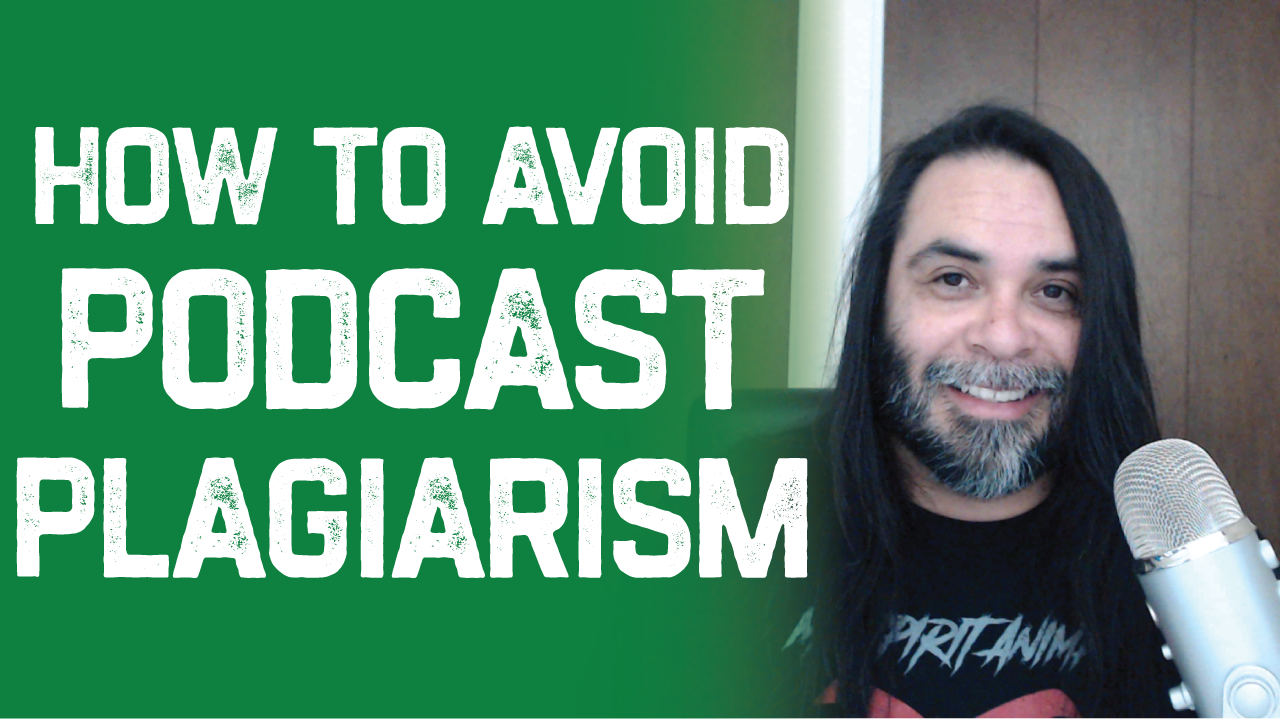How To Avoid Podcast Plagiarism
Sep 12, 2019
Today we're talking all about plagiarism and whether or not your podcast is in threat of being accused of plagiarizing someone else's content.
The reason why I bring up today's topic is because as of recently there was an article that was posted about a particular set of podcasters who supposedly lifted some content from a journalist--and that journalist accused those podcasters of taking his content and using it as their own.
What ended up happening was that those particular podcasters ended up deleting a number of episodes because they feared as though maybe they were plagiarizing some other piece of content.
Is this the right course of action that those podcasters could have taken? I don't know.
I don't think that it's wise to necessarily delete episodes, but maybe that's what needed to happen anyway. Secondly, it all comes down to the process of when you're creating content and when you're researching. Are you citing the correct sources. Let's examine what you need to do to avoid any type of plagiarism within your own podcast.
ALWAYS CITE YOUR SOURCES WHEN YOU LIFT OTHER PEOPLE'S CONTENT
First, always cite your sources. If you're going to be mentioning something or someone or some story within your podcast, make sure that you are citing that in your show notes. Shows notes just aren't the only place that you should be citing your source.
Next, you should always be verbally citing with a parenthetical inside of your podcast. What does the parenthetical mean? You've heard it before. when a TV anchor says, ..."and Donald Trump said quote (insert the quote verbatim)", and then the anchor mentioned "unquote" or "end quote"
You should be citing with a parentheticals, verbally, to make sure you give credit to the person who originally did the work for that particular story and keep you out of the crosshairs.
In today's world, we can definitely take a lot of information and use it for our own content creation and then think, "No one's ever really going to be paying attention."
But in the circumstance with this recent podcast that got popped for plagiarism, there are people who are listening. You wouldn't believe how many people are listening to certain podcasts and then all of a sudden come across and say, "Wow, that seems very odd. I feel like that was taken from somewhere else."
DON'T FORGET WHO YOU ARE CITING OR WHERE YOU'RE PULLING YOUR INFORMATION
Make sure that you are citing not only within the show notes--and doing your research by copying and pasting those links in your side notes when you're creating your podcast episode--but also using that verbal parenthetical. That's going to be the key.
Next let's talk about lifting audio from other podcasts or other sources like the news. Can you do this? I'm not a legal professional and I'm not going to tell you to do it one way or the other.
WHEN IN DOUBT, MOVE ONTO CREATING MORE ORIGINAL CONTENT
Here's my suggestion:
If what you want to use is questionable, contact an attorney. Seriously.
There are a lot of things out there that are basically in the Creative Commons gray area. I've heard podcasts use a clip from a news story and then give the verbal citation within the podcast audio itself. Personally, I don't like podcasting like that.
I've always believed that podcasting is creating original content only. When you create original content, you won't have any problems dealing with any types of plagiarism. If you ever find yourself in that gray area you can always go to this podcasting legal guide that is found online about Creative Commons licensing.
REACH OUT TO THE ORIGINAL CONTENT CREATOR AND GET PERMISSION
One way that you can get around any plagiarism accusations is by contacting the original content creator themselves. Not all of the time you will get a hold of them, but for the most part you should be able to get in touch with them and they are more than happy to give you permission.
Most people really enjoy the fact they're getting their name out there and promoted. I don't see it necessarily a problem, but if you are running into a problem where someone isn't going to give you that permission to use that piece of content, then just don't use it.
The best practice here is that you just have to be logical about what you are putting inside of your podcast and how you are citing it.
Have you ever questioned yourself when it comes down to plagiarism inside of your own podcast? Have you struggled with plagiarism for your own podcast and someone else lifting your content for their own? I'd be interested in hearing what you have to say.
Go ahead and leave a comment down below in the comments.









